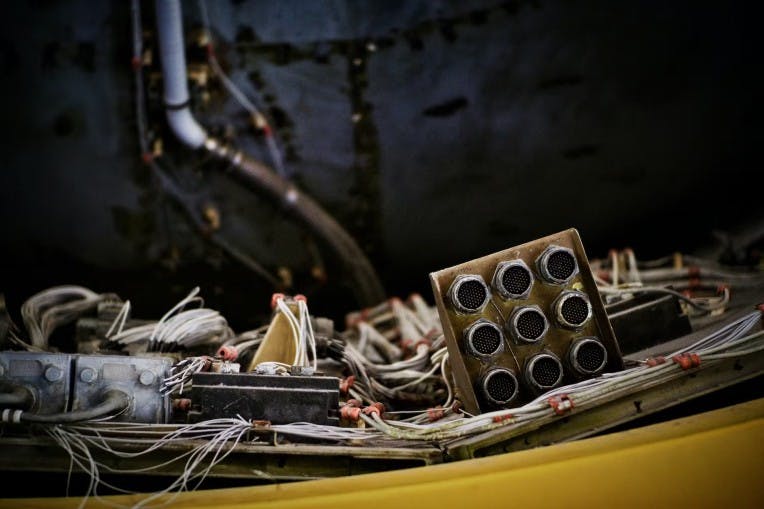
Waste Electrical and Electronic Equipment Recycling (WEEE)
Safe and compliant disposal of electronic waste, protecting the environment and your data
What is WEEE Waste?
Waste Electrical and Electronic Equipment (WEEE) refers to any electrical or electronic equipment that is no longer functional or desired. This includes a wide range of items, from household appliances to IT equipment.
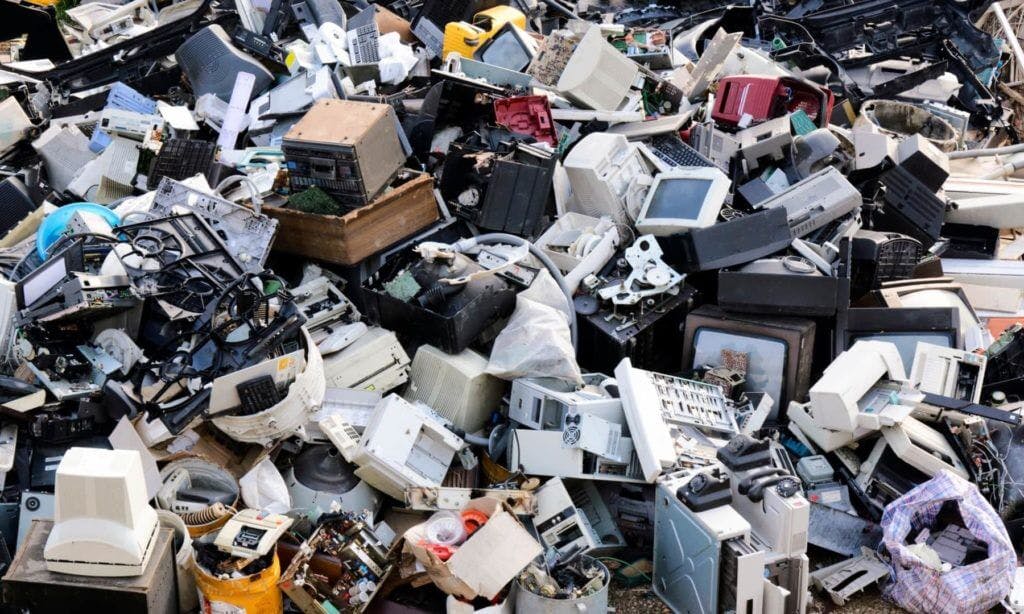
What we do?
WEEE is one of the fasting growing forms of waste. It must be disposed of safely and with minimal damage to avoid harmful metals, such as mercury and lead, from getting into landfill soils and possibly polluting water supplies.
Like all our other services, we offer a comprehensive service including a detailed onsite inspection to identify your requirements; our trained staff will be on hand to pack and clear all of your WEEE waste.
We dispose of all types of waste electrical and electronic equipment. This is then packed into crates and tonne bags and sent off for disposal and recycling. Our clearances and disposal are all certified, any hard drives are wiped if needed be and after disposal certificate of destruction is provided.
Hurn Recycling can remove all your electrical equipment and guarantee its disposal in line with WEEE legislation.
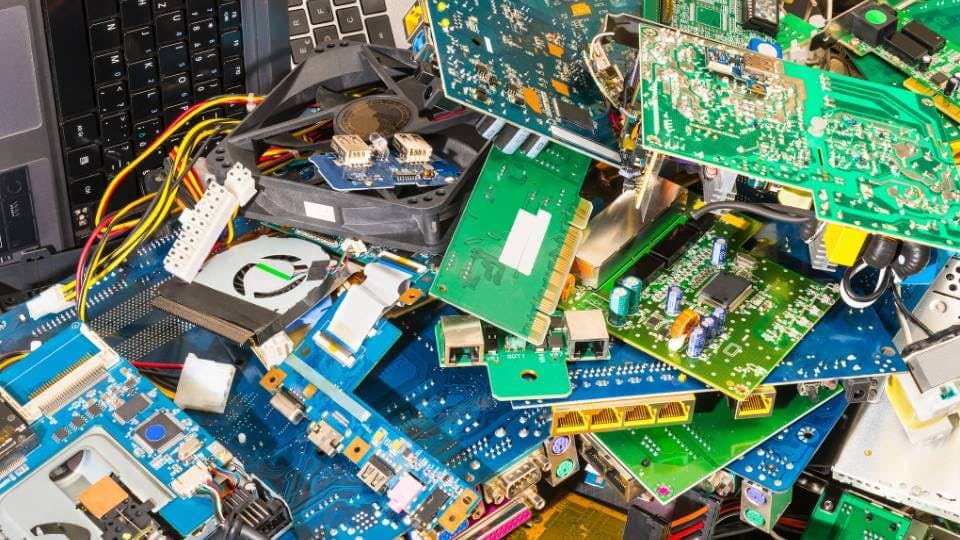
WEEE Waste Collection and Disposal Bin Sizes
We offer comprehensive WEEE recycling services, ensuring safe collection, data destruction, and environmentally friendly disposal of electronic waste. Our clearances and disposal are all certified. Any hard drives are wiped if needed be and after disposal certificate of destruction is provided.
Features:
- On-Site Assessment: Detailed inspections to identify your specific WEEE disposal needs.
- Secure Data Destruction: Wiping or destruction of hard drives to protect sensitive information, with certificates of destruction provided.
- Certified Disposal: All processes comply with WEEE legislation, ensuring legal and environmental standards are met.
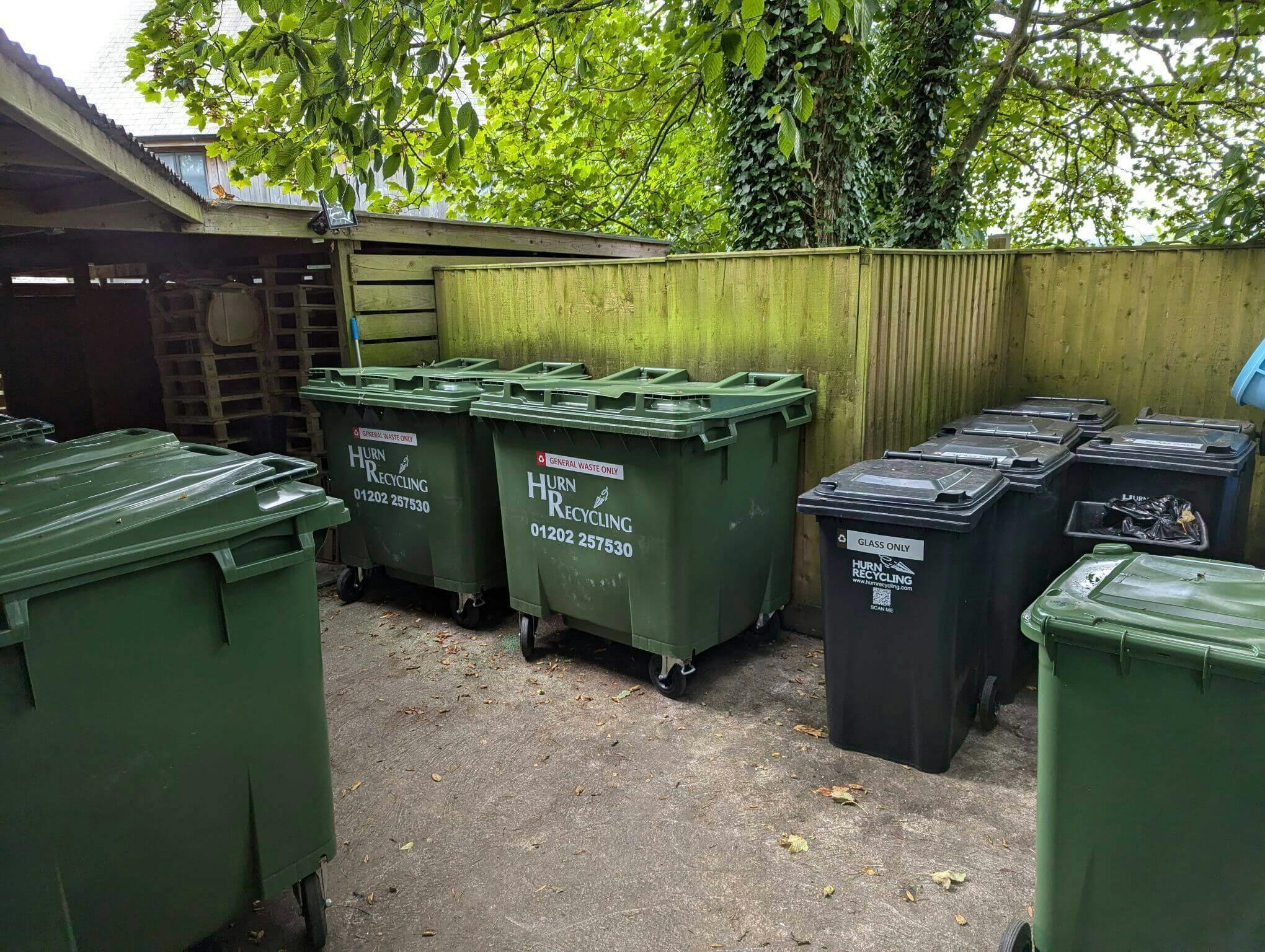

What is WEEE?
Waste Electrical and Electronic Equipment (WEEE) refers to any household or non-household electrical or electronic equipment that is broken or redundant. WEEE can include:
Large household appliances
e.g - fridges, cookers, microwaves
Small household appliances
e.g - vacuum cleaners, clocks.
IT and telecommunications equipment
e.g - personal computers, copying equipment, telephones, pocket calculators
Lighting equipment
e.g - straight and compact fluorescent tubes, high-intensity discharge lamps
Electrical and electronic tools
e.g - drills, saws, sewing machines, electric lawnmowers
Toys, leisure, and sports equipment
Medical devices
e.g - (non-infected) dialysis machines, analyzers, cardiology equipment
Monitoring and control equipment
e.g - smoke detectors, thermostats, heating regulators
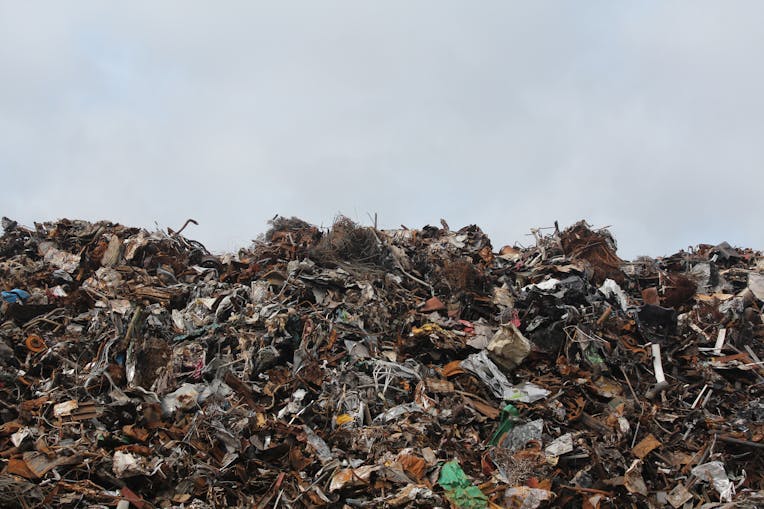
What are the problems with Electrical Waste?
In the UK, we discard approximately 155,000 tonnes of electricals every year, instead of reusing or recycling them. This poses a major threat to the environment and to human health.
Electrical Resources
If electrical resources are not being recycled and end up in landfill, valuable resources are more than likely lost forever.
Damaged Economy
In the UK, approximately £370 million per year is lost due to the loss of valuable raw materials such as copper, aluminium, gold and steel.
The production of electricals creates carbon emissions. Recycling our old electricals would cut a considerable amount of CO2 emmissions.
Areas we cover
Our recycling centres are based in Bournemouth & Exeter. However, we offer recycling waste management and waste collection across Dorset & Devon alongside other surrounding counties such as Hampshire, Somerset and Wiltshire. Specifically in the following areas:
Dorset
BH Postcodes - Bournemouth, Poole, Christchurch, Wimborne, Ferndown, Wareham, Swanage, Bridport, Lyme Regis, Blandford Forum, Verwood, Ringwood
DT Postcodes - Dorchester, Weymouth, Portland, Bridport, Lyme Regis, Blandford Forum
Devon
EX Postcodes – Covers Exeter (city), Broadclyst, Clyst St Mary, Silverton, Exmouth, Budleigh Salterton, Sidmouth, Ottery St Mary, Seaton, Axminster, Honiton, Colyton
Hampshire
SO Postcodes – Totton, Lymington, Brockenhurst, Lyndhurst, Hythe
SP Postcodes – Fordingbridge (SP6)
Wiltshire
SP1 & SP2 Postcodes – Covers Salisbury
Why choose Hurn Recycling's WEEE service?
There is a number of reasons to choose Hurn Recycling for your WEEE recycling, disposal and collection. It is our sole objective to make it as easy as possible for you to get the WEEE removal service you need. Here is a few of the many reasons to choose Hurn Recycling:
- We offer an easy, cost effective, and sustainable solution
- We provide a comprehensive service including a detailed onsite inspection to identify all of your requirements.
- Our clearances and disposal are all certified
- Our clearances and disposal are all certified, any hard drives are wiped if needed be and after disposal certificate of destruction is provided.
- We have a dedicated and accessible team that is on hand to help you with any questions or enquiries
- We cover the majority of the South West - Dorset, Devon, Hampshire, Somerset and Wiltshire.
To find out more, give us a call on 01202 257 530 or go to our contact form to message us.
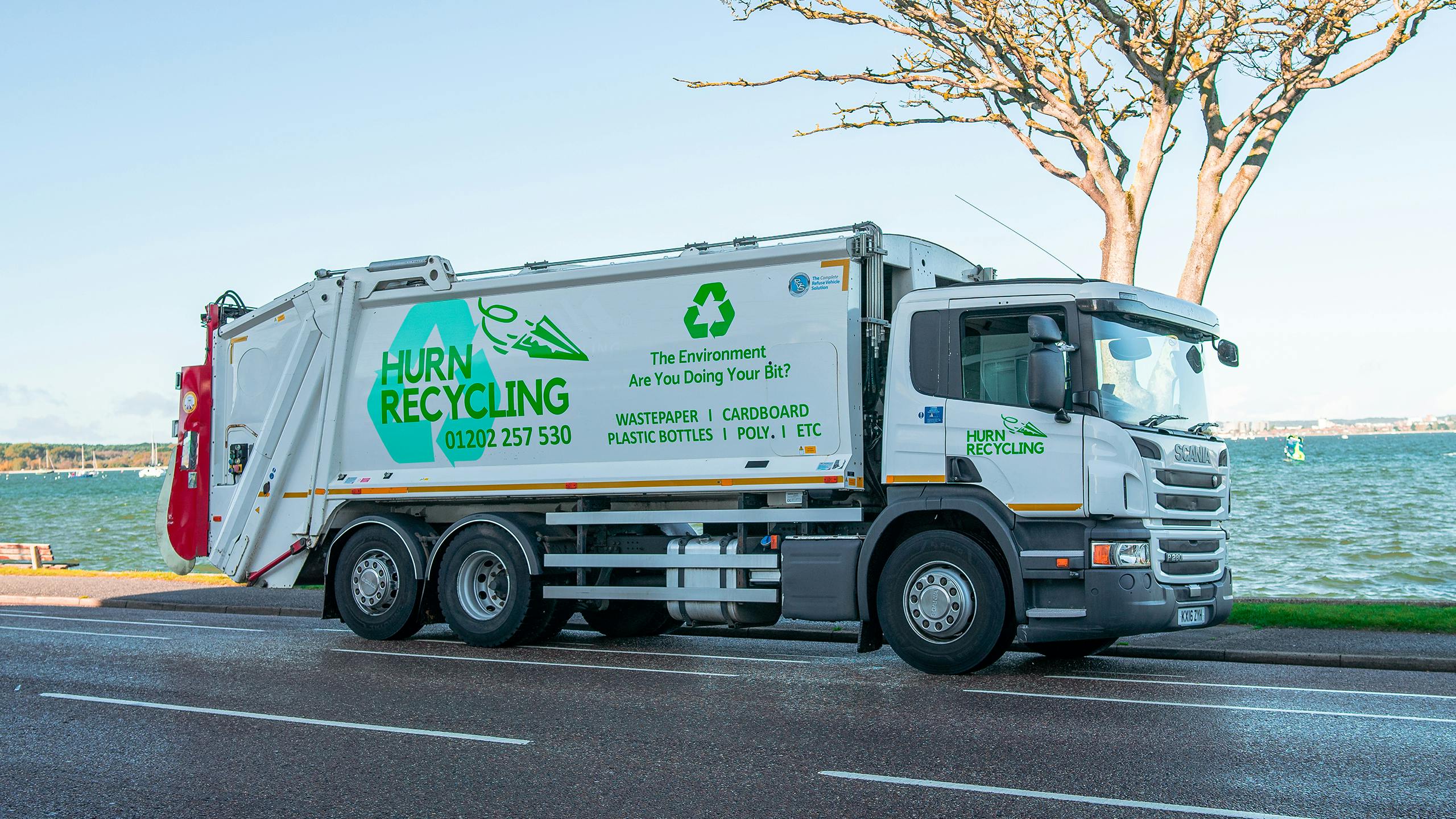
How does WEEE recycling work?
The Waste Electrical and Electronic Equipment (WEEE) Regulations (2013) became law in the UK on 1 January 2014 and replaced the WEEE Regulations 2006. The exact treatment of WEEE can vary enormously according to the category of WEEE and technology that is used. Some treatment facilities utilise large-scale shredding technologies, whilst other use a disassembly process, which can be manual, automated or a combination of both.
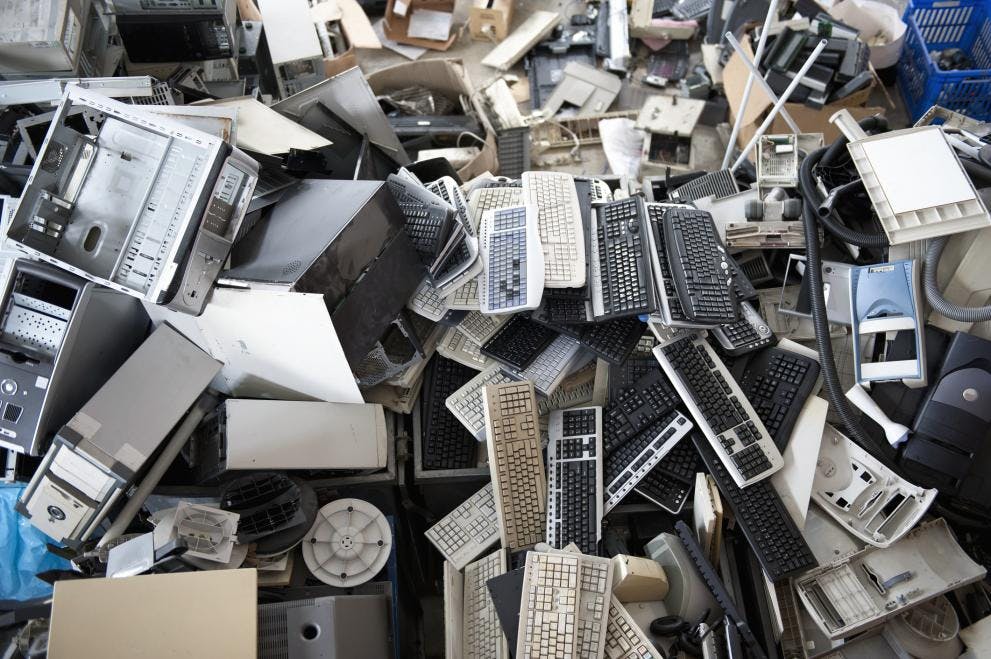
Receive Your Instant Recycling Quote
Save time by using our online quote form to instantly get a competitive quote for our recycling services.
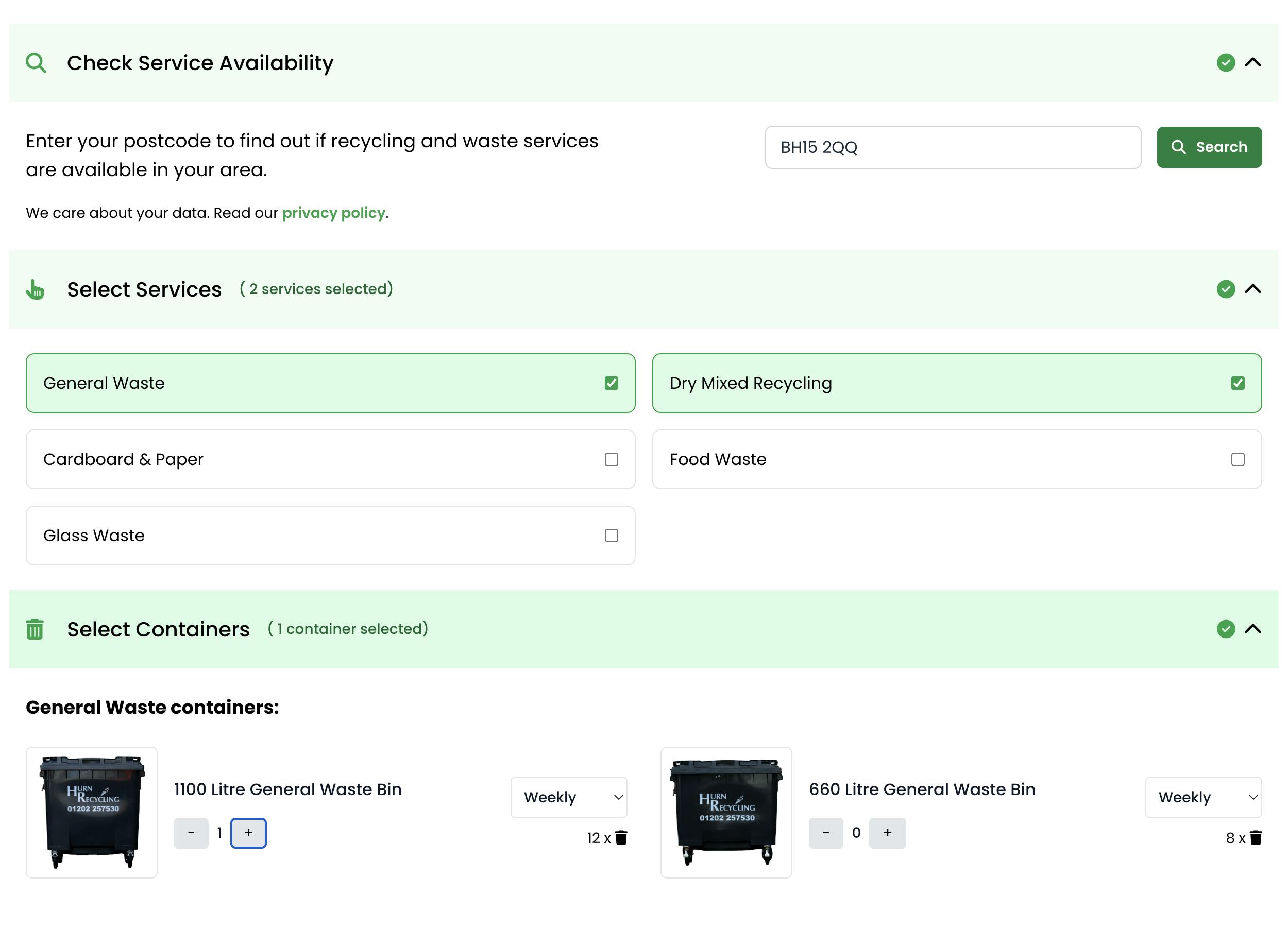
First Step: Enter your postcode
Second Step: Select your services you required
Third Step: Select your containers and frequency
Final Step: Submit your quote and check your inbox!
Get in touch
Commercial Recycling and waste management in Poole and Bournemouth, Dorset. Serving the surrounding counties. Helping Businesses save money and reduce landfill since 1995.
We look forward to hearing from you by phone or email. Alternatively, you can complete our enquiry form and we will get right back to you.
- Bournemouth
Hurn Recycling Ltd, 452 Bournemouth International Airport, Christchurch, Dorset, BH23 6NW
- 01202 257530
- Exeter
Hurn Recycling Ltd, Greendale Business Park, Compound 67, Honey Lane, Woodbury Salterton, Exeter, EX5 1EW
- 01392 323316